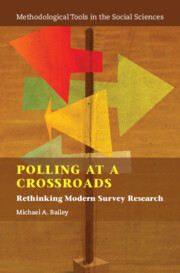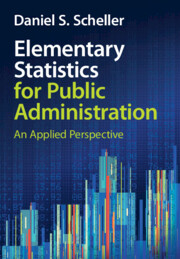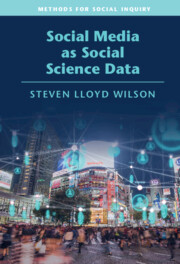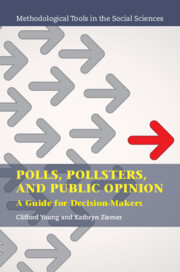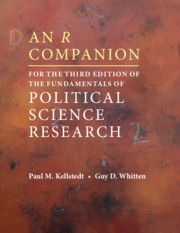Polling at a Crossroads
Survey research is in a state of crisis. People have become less willing to respond to polls and recent misses in critical elections have undermined the field's credibility. Pollsters have developed many tools for dealing with the new environment, an increasing number of which rely on risky opt-in samples. Virtually all of these tools require that respondents in each demographic category are a representative sample of all people in each demographic category, something that is unlikely to be reliably true. Polling at a Crossroads moves beyond such strong limitations, providing tools that work even when survey respondents are unrepresentative in complex ways. This book provides case studies that show how to avoid underestimating Trump support and how conventional polls exaggerate partisan differences. This book also helps us think in clear and sometimes counterintuitive ways and points toward simple, low-cost changes that can better address contemporary polling challenges.
- Uses the lens of contemporary theory and practice to explore the history of polling in way that allows readers to understand why modern polling struggles
- provides low-cost, actionable tools to counter all kinds of non-response
- Provides intuitive explanations of the challenges facing contemporary polling
Reviews & endorsements
'Throughout the masterful Polling at a Crossroads, Bailey provides a lucid explanation of the problems pollsters face and a compelling argument for why a new approach is needed. By bringing ideas and insights from various disciplines together, Bailey shows how pollsters can move beyond past approaches to tackle increasingly consequential issues related to survey non-response; respondents now differ from non-respondents in unobservable ways. In describing the issues confronting contemporary polling, the book builds to a convincing and forceful advocacy for the use of selection models in survey research and, in so doing, it provides a perspective that every pollster must consider going forward.' Josh Clinton, Abby and Jon Winkelried Chair, Vanderbilt University
'The idea of learning about a country of 300 millions from a sample of 300 is extremely seductive. But seduction often comes with dangers. Bailey's timely book explains why the dangers are increasingly fatal, and how the field of polling may save itself.' Xiao-Li Meng, Whipple V. N. Jones Professor of Statistics, Harvard University
Product details
No date availableHardback
9781108482790
290 pages
235 × 159 × 22 mm
0.56kg
Table of Contents
- Part I. Polling in Context:
- 1. Modern Polling: Challenges and Opportunities
- 2. The Story of Polling in 2.5 Fiascos
- 3. Weighting: An Appreciation and Critique
- 4. The Wild West of Contemporary Polling
- Part II. A Framework for Modern Polling:
- 5. Non-Ignorable Non-Response
- 6. Contemporary Polling and Non-Ignorable Non-Response
- Part III. Fighting Non-Ignorable Non-Response:
- 7. Bounding Damage from Non-Ignorable Non-Response
- 8. Selection Models for Non-Ignorable Non-Response
- 9. Next Generation Selection Models
- 10. Randomized Response Instruments
- 11. Putting it Together
- Part IV Applications:
- 12. Non-Ignorable Non-Response in Political Surveys
- 13. Non-Ignorable Non-Response in Public Health
- 14. Conclusion.

